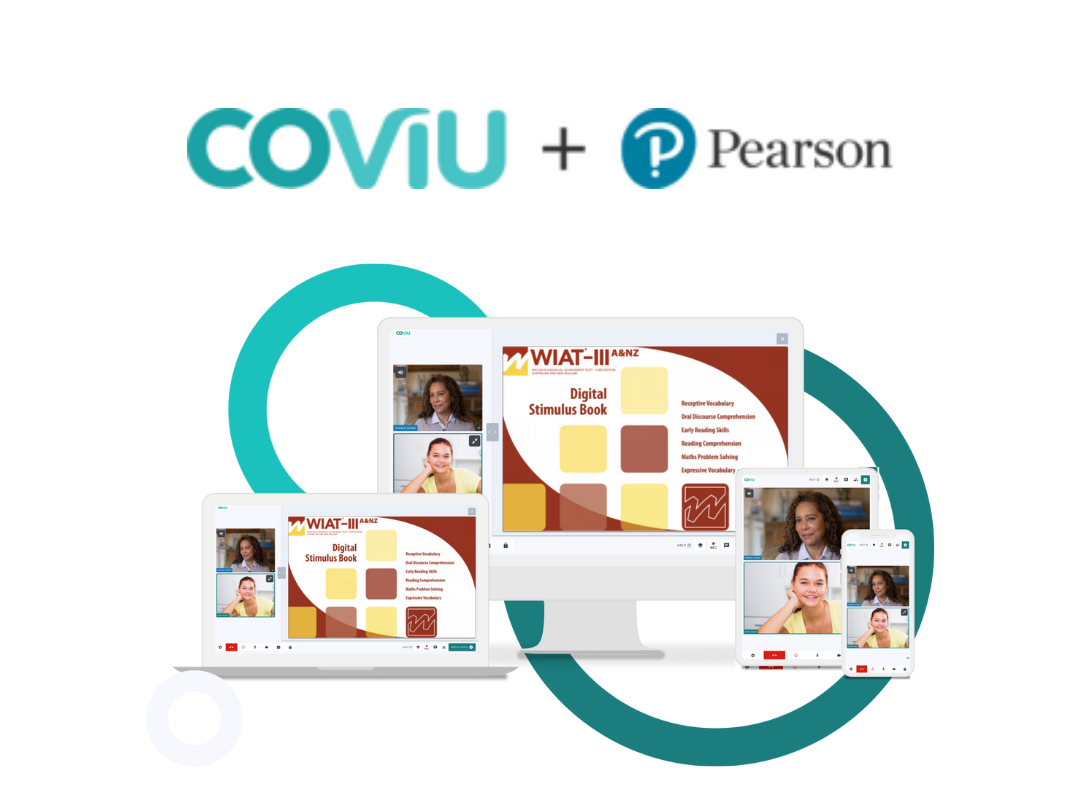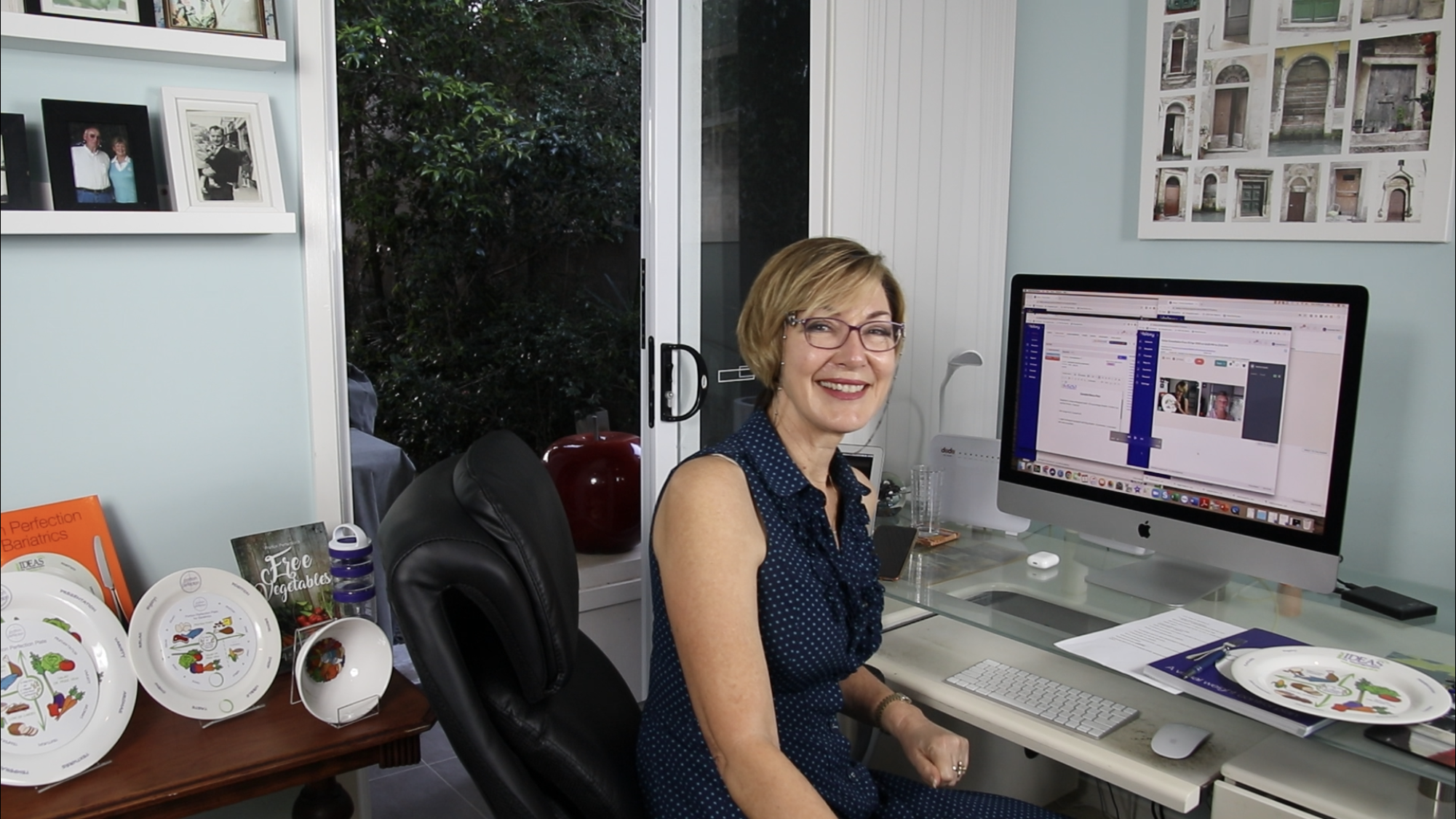Benefits and Challenges of Delivering Pearson Assessments Remotely
With the explosion of telehealth during the COVID-19 pandemic, an unprecedented number of practitioners are looking to take their practice either partially or wholly online and embrace in-built clinical features. In early 2022, Coviu conducted customer interviews to understand the key benefits and challenges for providers and clients of administering Pearson assessments over virtual care.
.png?width=1788&name=BDI-2%20-%20Laptop%20-%20No%20Circles%20(1).png)
Limitations of corporate video software lead to a partnership between Pearson Clinical and Coviu. As a result, clinicians, including mental health practitioners and speech pathologists are able to offer in-built assessments remotely hosted on the Coviu platform.
In 2022, Coviu interviewed three users to uncover more about the validity and reliability of remote assessments, launching a review of current research studies. The discovery interviews uncovered more about the features, benefits, and challenges of Pearson assessments available through the Coviu marketplace as part of a comprehensive virtual care model.

About Coviu and Pearson Clinical
Pearson Clinical is a multinational publishing and education company and the global leader in clinical assessments. Coviu, a leading telehealth platform partnered with Pearson Clinical in 2015, to create a seamless integration of the two products, to enable behavioral health professionals to administer Pearson assessments remotely via Coviu.
Coviu’s platform was created specifically for healthcare needs with security and privacy features built into the platform, making it a platform of choice for healthcare professionals globally. Currently, there are 13 Pearson assessments available on Coviu with new assessments being added regularly, including WISC-V, WAIS-IV, KBIT-2, RBANS® Update, and others. Between 2015 and 2020, a rigorous process was implemented to conduct research into the remote delivery of Pearson assessments over telehealth, followed by extensive usability testing. The process ensured that the remote administration of the assessments closely mimics that of the in-person experience, without compromising the validity and reliability of the results.
Clinical Evidence
A growing number of studies support the claim that cognitive assessments delivered over a virtual care model are comparable to in-person assessments. This can be seen in the delivery of assessments across a variety of aged groups and for a wide range of assessments. For both pediatric and adult patients, clinically meaningful differences between service delivery methods were insignificant.
For language assessments, similar findings were observed, with little difference identified between the effectiveness of virtual care versus in-person assessments.
To see a more detailed breakdown of the results from our review of recent research download the full case study here.
Benefits of Remote Assessments
There are many advantages attributable to remote administration of cognitive and language assessments. Through the discovery interviews, the following key benefits were identified:
1. The ability to deliver cognitive assessments remotely helped clients significantly reduce their wait time to get assessed and receive early intervention.
2. Remotely delivered cognitive assessments made it more accessible for clients to receive a diagnosis, removing barriers such as long distances to travel, expenses related to travel and lack of public transport.
3. The ability to administer cognitive assessments remotely added more flexibility and efficiency to providers. Clients no longer needed to cancel appointments if they experience flu-like symptoms, as they could be done over telehealth, reducing cancellations. They could also isolate at home when experiencing symptoms without having to cancel their appointment.
4. Delivering assessments via telehealth enabled providers to expand their clinical footprint and service areas outside of their geographical location.
5. Virtual care can lend itself to better engagement through the use of technology. This is particularly true for children and young adults who have grown up with computers.
.jpg?width=5184&name=sigmund-7AKBq3rD480-unsplash%20(1).jpg)
Challenges of Remote Assessments
While the benefits of remotely delivered assessments are significant, it is important to also identify common barriers to delivering assessments remotely and offer potential solutions to these. Regular challenges include:
1. Difficulties in managing young children with attention-deficit disorders.
2. Limitations with administering subtests, particularly those requiring physical items to complete the test.
3. Technology problems stemming from poor internet connection such as on-screen lag.
There are a number of best practice solutions to these hurdles, as discussed by the three discovery interviewees.
More information on these challenges, and overcoming them is available in the full case study here.
Gaining Confidence with Virtual Assessments
Coviu's interviews with its users supported research concluding that the amount of practice required by behavioral health professionals to reach a level of competency with virtual health varies. This is mostly to do with how confident the user is with Pearson Assessments, as well as utilizing technology.
Recommendations & Considerations
To aid in the seamless transition from in-person to either a wholly or partially virtual care model, Pearson has provided a document with a complete set of recommendations for the delivery of assessments remotely. Best practice includes preparing examinees, and related members before administering assessments, as well as smoothing out technological issues for better delivery.
Conclusion
Overall, the advantages for clients and providers are significant and have led many practitioners to embrace telehealth as a business-as-usual service. As we battle shortages of mental health professionals, telehealth assessments offer a solution to a strained healthcare system around the world.
If you have any questions or suggestions for additional features you'd like to see, please don't hesitate to reach out!
If you haven't yet tried Coviu, you can get started today with a 2-week free trial - no credit card required!






